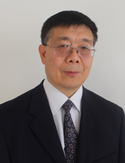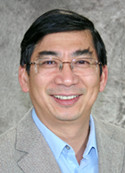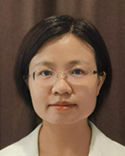
Prof. Nagendra Kaushik
Kwangwoon University, South Korea
Prof. Nagendra Kaushik is working at the Department of Electrical and Biological Physics & Plasma Bioscience Research Center at Kwangwoon University, Seoul (South Korea) since 2011. His research work is primarily focused on plasma bioscience & medicine, plasma agriculture, plasma environment, cancer biology & immuno-modulations, plasma chemistry, nanobiotechnology, and biomaterials. He has published more than 150 high impact publications, including many in top-ranked journals such as Biomaterials (impact factor 15.6), Cancer Research (impact factor13.3), Journal of Advanced Research (impact factor 12.4), Green Chemistry (impact factor 11.3), Materials Today Bio (impact factor 10.7), Science of The Total Environment (impact factor 10.75) and Journal of Nanobiotechnology (impact factor 11.5) and Bioactive Materials (impact factor 17.3) and applied several product and process patents. His H-index is 34 and the I10 index is 74 with a total citation of around 5000. Prof. Nagendra is serving as the editor of more than 20 journals including Scientific Report, PloS One, IEEE Journals, Frontiers journals, and many others. He is also listed in World's Top 2% Scientists by Stanford University and Elsevier continuously since 2020.
~~~~~~~~~~~~~~~~~~~~~~~~~~~~~~~~~~~~~~~~~~~~~~~~~~~~~~~~~~~~~~~~~~~~~~~~~~~~~~~~~~~~~~~~~~~~~~~~~~~~~~~
Previous Speakers

Prof. Buyong Ma
Shanghai Jiaotong University, China
Professor Buyong Ma has more than 25 years experiences in the computational studies of protein structure and function, protein engineering, and antibody-antigen recognition. He has proposed “conformation selection” theory which is widely used in explaining drug-target interaction. Dr. Ma received his Ph.D. in physical chemistry from the University of Georgia at Athens in 1995 and continued his postdoctoral training on computational chemistry. He joined NCI/NIH in 1998. In 2019, Dr. Ma accepted a tenured professor position in the school of pharmacy, Shanghai Jiaotong University, focusing on biological drug design. He has published more than 200 papers, with google citation of 21000 and H-index 66.

Prof. Walter Herzog
University of Calgary, Canada
Dr. Herzog did his undergraduate training in Physical Education at the Federal Technical Institute in Zurich, Switzerland (1979), completed his doctoral research in Biomechanics at the University of Iowa (USA) in 1985, and completed postdoctoral fellowships in Neuroscience and Biomechanics in Calgary, Canada in 1987. Currently, Dr. Herzog is a Professor of Biomechanics with appointments in Kinesiology, Medicine, Engineering, and Veterinary Medicine, holds the Canada Research Chair for Cellular and Molecular Biomechanics, and is appointed the Killam Memorial Chair for Inter-Disciplinary Research at the University of Calgary. His research interests are in musculoskeletal biomechanics with emphasis on mechanisms of muscle contraction focusing on the role of the structural protein titin, and the biomechanics of joints focusing on mechanisms of onset and progression of osteoarthritis. Dr. Herzog is the recipient of the Borelli Award from the American Society of Biomechanics, the Career Award from the Canadian Society for Biomechanics, the Dyson Award from the International Society of Biomechanics in Sports, the Muybridge Award from the International Society of Biomechanics, and recently received the Killam Prize in Engineering from the Canada Council for the Arts for his contributions to Biomedical research. He is the past president of the International, American and Canadian Societies for Biomechanics. He was inducted into the Royal Society of Canada in 2013.

Prof. Chang-Deng Hu
Purdue University, USA
Dr. Chang-Deng Hu is a Professor and Steve and Lee Ann Taglienti Chair in Pharmacy in the Department of Medicinal Chemistry and Molecular Pharmacology, Purdue University College of Pharmacy. He also serves as Program Co-Leader of Cell Identify and Signaling and Program Co-Leader of Prostate Cancer Discovery Group in the Purdue University Center for Cancer Research. Dr. Hu received his M.D. from Bengbu Medical College, China and Ph.D. in molecular biology from Kobe University, Japan. Prior to his Ph.D. study, he also conducted his graduate study for M.S. degree in tumor immunology at Tongji Medical University, China. During his postdoctoral research at the University of Michigan, Dr. Hu pioneered the development of bimolecular fluorescence complementation (BiFC) technology for visualization of protein-protein interactions in live cells. His lab at Purdue has developed an integrated research program that involves technology development, biological discovery, and clinical translation. The current research focus in the lab is “Mechanism and targeting of therapy-induced neuroendocrine differentiation in prostate cancer.”

Assoc. Prof. Dan Li
Zhejiang University, China
Dan Li is an associated professor at the College of Pharmaceutical Sciences, Zhejiang University, Hangzhou, P. R. China. She received her PhD degree in Biochemistry and Molecular Biology from Marburg University, Germany in 2009. She then worked as a postdoctoral fellow in the research group of Prof. Dr. Roland K. Hartmann (Institute of Pharmaceutical Chemistry, Philipps-UniversityMarburg, Germany) from 2009 to 2010, and then Alexander von Humboldt fellowship in the research group of Prof. Dr. Albrecht Bindereif (Institute of Biochemistry, Justus-Liebig-University Giessen, Germany) from 2010 to 2013. Her research work is now focusing on design and discovery of small new-scaffold bioactive compounds targeting innovative target sites, especially on drugs targeting nucleic receptor.
